Cleveland’s economy to be boosted by cleaner water
A mine water treatment scheme is helping to improve the bathing water quality at Saltburn-by-the-Sea in the north east of England.
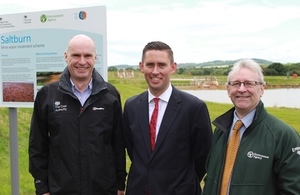
Pictured: Stephen Dingle, Chair, Coal Authority, Tom Blenkinsop, MP for Middlesbrough South and East Cleveland, and Graeme Warren, Area Manager (North East), Environment Agency
The local economy of Redcar and Cleveland is set to benefit after a new mine water treatment scheme becomes operational to improve the bathing water quality of the area.
The Coal Authority has calculated that stopping iron entering water at Saltburn, which then flows into the North Sea, has the potential to add £10.5 million into the local economy over the next 25 years.
Stephen Dingle, Chair of the Coal Authority, said: “This water treatment scheme has been carefully designed by our experts to address the pollution problems caused by historical mining operations.
“We are delighted with the excellent performance of the system, as it removes in excess of 98% of metals from the mine water before it is put back into the local waterways.”
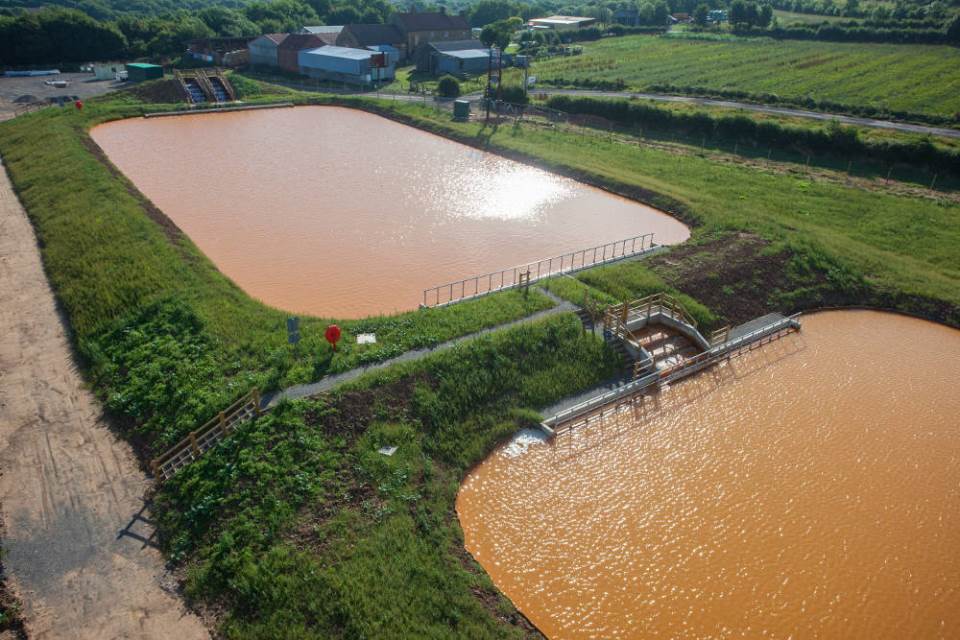
Saltburn mine water treatment scheme
Graeme Warren, the Environment Agency’s Area Manager for the North East, said: “In 1999 a large mine water outbreak occurred which flowed into Saltburn Gill, quickly turning the stream a bright orange colour.
“This severely impacted the fish and river insects and smothered the stream bed in Saltburn Gill and Skelton Beck but it also affected the bathing water quality on the beach.
“We’re really pleased that this new treatment scheme supports the objectives of the Northumbria River Basin Management Plan to return the watercourses to a high standard, improving both the biodiversity of the area and the water quality of one of the most popular surfing beaches along the east coast.”
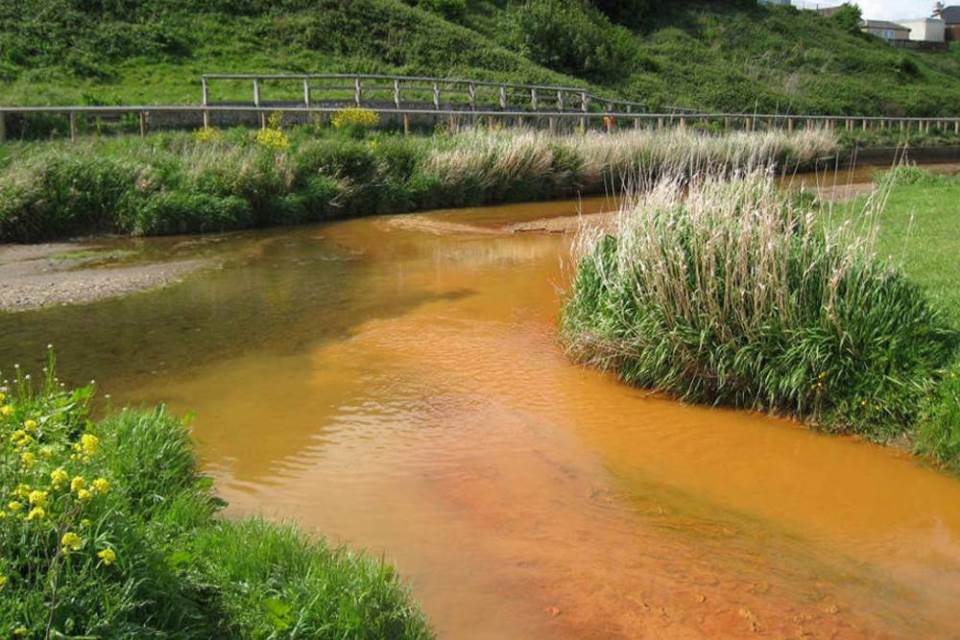
Mine water pollution at Saltburn before the treatment scheme
The area of East Cleveland saw large-scale deep mining for well over 100 years. When local ironstone mining operations stopped in the 1960s, the pumps that removed water from the mines were turned off and removed.
Water made its way into the old mine workings and eventually reached the surface allowing the iron to enter the streams where it settled out as a sludge called iron ochre.
Although not harmful to people, the iron ochre caused severe pollution to both streams, discoloured the beach and sometimes caused an orange plume to form in the North Sea.
Tom Blenkinsop, MP for Middlesbrough South and East Cleveland, said: “This work has finally seen success in clearing up this watercourse from this unsightly reminder of our mining past.
“It will help boost our local economy by making Saltburn the jewel in the crown of East Cleveland’s seaside, benefiting both tourists and local businesses. Adding in that this brings back wildlife to Saltburn Gill and Skelton Beck, allowing us to see riverside plants, animals and fish flourish again, makes it the ultimate win-win.”
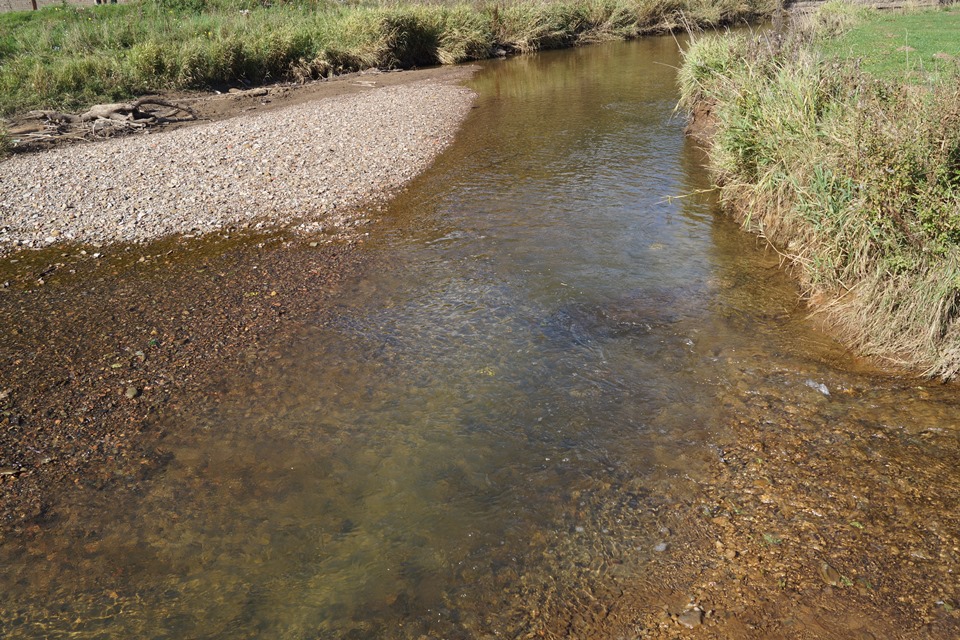
Watercourse at Saltburn following treatment
Environment Minister Rory Stewart, said: “Thanks to Defra funding the construction of this scheme, the rivers of Saltburn are thriving and the water is running clear once more.
“It is fantastic to see fish like the brown trout and European bullhead returning here again and it’s not just the environment that’s benefitting - this is a boost for the local economy and the community, who have their waters back.”
Jim Wingham, Saltburn Gill Action Group Chairman said: ‘“We’re proud of the fact that we helped to provide the solution to ridding our community of this serious pollution and of the way that many organisations worked together to achieve our goal.”
The action group worked with the Environment Agency to gain funding to investigate options to clean up the pollution and together they secured the necessary funding from the Department of Environment, Food and Rural Affairs to address the issue for the local community.
Stephen Dingle added: “Following initial work, we were asked to develop and build the mine water treatment scheme because of our expertise in treating water at historical mining sites.
“The treatment scheme works by using four lagoons, with cascades and a drying bed, to remove the iron from the raw mine water.
“The mine water is pumped to the top of aeration cascades and over a period of two days it flows down through each settlement lagoon where the majority of the iron settles.
“The sludge is then transferred through underground pipes from the bottom of the lagoons through into the drying bed where it is collected and removed. The treated water then passes through a polishing reed bed that acts as a further filter.
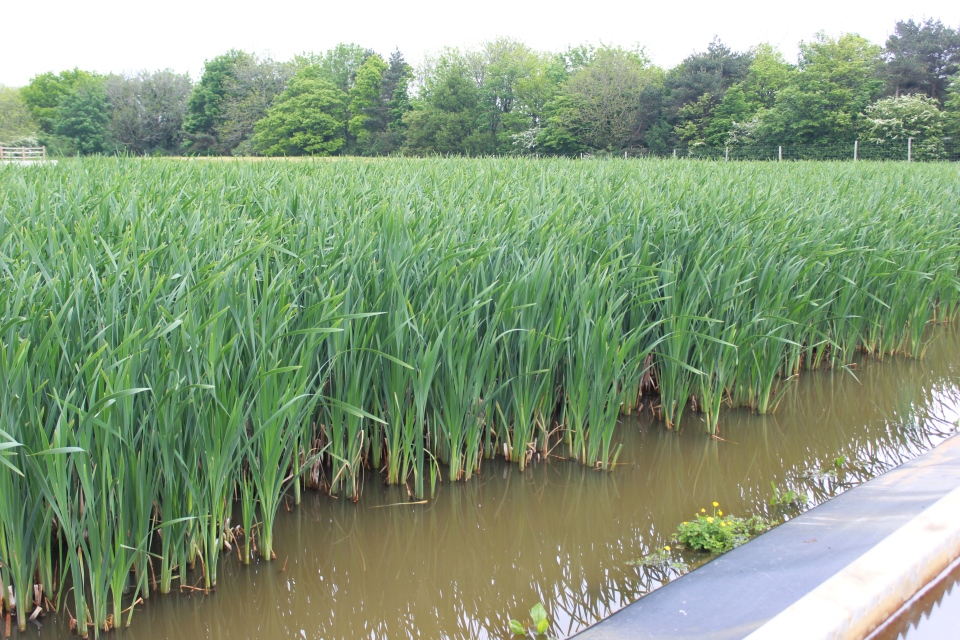
Reed beds at Saltburn mine water treatment scheme
Graeme Warren added: “We’re delighted to be involved in this Saltburn scheme, which is the culmination of many years of hard work, together with our partners and the community, to make vast improvements to the water quality in the area.
“Our bathing waters are better now than they’ve ever been and we’re committed to maintaining what we’ve achieved so far and further improving water quality and biodiversity right across our waters. Schemes like this will help us move forward to create even more effective and sustainable mine water treatment schemes elsewhere in England.”